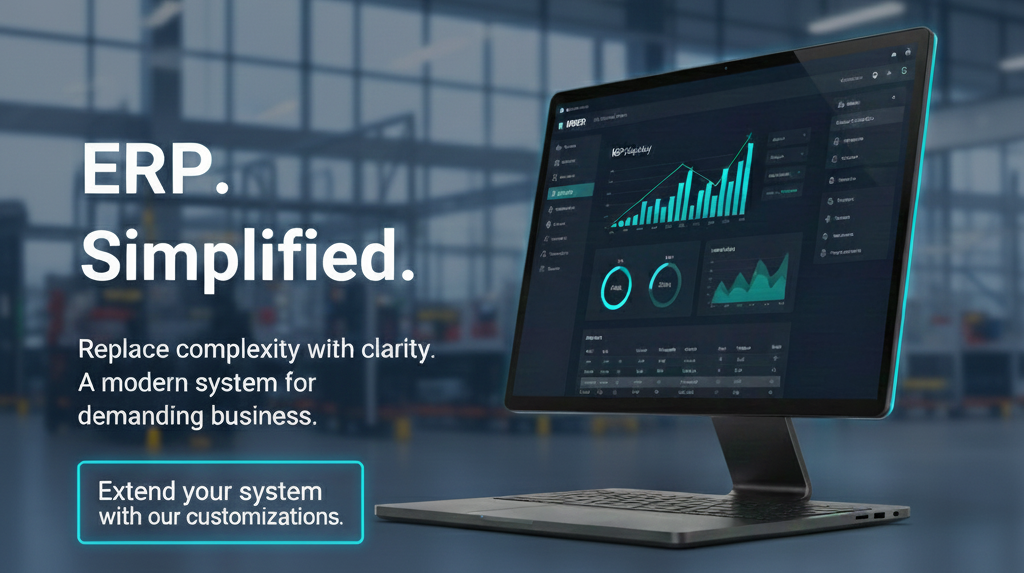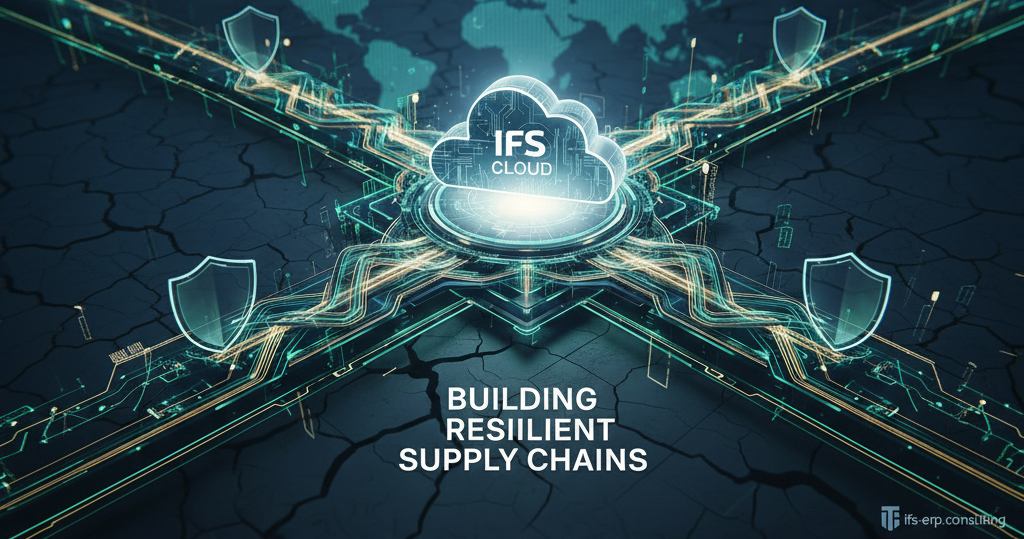In today’s volatile business environment, building a resilient supply chain is no longer optional. Disruptions such as natural disasters, geopolitical tensions, and supplier failures can have far-reaching consequences on operations, customer satisfaction, and profitability. IFS Cloud offers a comprehensive suite of tools designed to enhance supply chain resilience through real-time visibility, proactive risk management, and agile response capabilities.
This article explores how organizations can leverage IFS Cloud to future-proof their supply chains. We will delve into key strategies such as multi-tier supply chain collaboration, demand sensing, and scenario planning, and provide practical steps for implementation.
The Importance of Supply Chain Resilience
Supply chain resilience refers to an organization’s ability to anticipate, prepare for, respond to, and recover from disruptions. A resilient supply chain ensures business continuity, minimizes risks, and maintains customer trust even in the face of unexpected events.
Recent global events have highlighted the vulnerabilities in traditional supply chain models. Companies that have invested in resilience are better positioned to navigate disruptions, maintain operations, and capitalize on new opportunities.
Key Challenges in Supply Chain Management
Modern supply chains face several challenges that can impact their resilience
- Lack of Visibility. Many organizations struggle with limited visibility beyond their direct suppliers, making it difficult to anticipate and mitigate risks.
- Complexity. Global supply chains involve multiple stakeholders, regulations, and logistics networks, increasing the potential for disruptions.
- Demand Volatility. Fluctuating customer demand and market conditions require agile and responsive supply chain strategies.
- Risk Management. Identifying and managing risks across a multi-tier supply chain can be complex and resource-intensive.
How IFS Cloud Enhances Supply Chain Resilience
IFS Cloud provides a robust platform for building resilient supply chains. Its integrated suite of applications offers real-time data, advanced analytics, and collaborative tools that enable organizations to proactively manage risks and respond swiftly to disruptions.
Real-Time Visibility
One of the cornerstones of supply chain resilience is real-time visibility. IFS Cloud offers a unified view of inventory, demand, and supplier performance across the entire supply network. This visibility allows businesses to
- Monitor inventory levels and track shipments in real time.
- Identify potential bottlenecks and take corrective actions proactively.
- Collaborate effectively with suppliers and logistics partners.
Multi-Tier Supply Chain Collaboration
IFS Cloud facilitates multi-tier supply chain collaboration by providing tools for sharing data, tracking performance, and managing risks across the entire supply network. This collaboration extends beyond direct suppliers to include sub-suppliers and other stakeholders, ensuring a more resilient and responsive supply chain.
With IFS Cloud, businesses can
- Share demand forecasts and production plans with suppliers to align operations.
- Monitor supplier performance and compliance with contractual obligations.
- Collaborate on risk management and contingency planning.
Demand Sensing
Demand sensing uses real-time data and advanced analytics to predict customer demand more accurately. By leveraging machine learning and AI, IFS Cloud helps businesses adjust production, inventory, and logistics dynamically, reducing lead times and improving customer satisfaction.
Key benefits of demand sensing include
- Improved demand forecasting accuracy.
- Reduced stockouts and excess inventory.
- Enhanced ability to respond to market changes and customer needs.
Scenario Planning
Scenario planning involves creating and analyzing multiple «what-if» scenarios to prepare for potential disruptions. IFS Cloud supports scenario planning by providing simulation tools that help businesses evaluate the impact of different events and develop robust contingency plans.
With IFS Cloud, organizations can
- Model various disruption scenarios and assess their potential impact.
- Develop and test contingency plans to ensure business continuity.
- Make data-driven decisions based on real-time insights and predictive analytics.
Implementing Supply Chain Resilience with IFS Cloud
Building a resilient supply chain with IFS Cloud involves several key steps. Here’s a practical guide to get started
Step 1. Assess Current Capabilities
Begin by assessing your current supply chain capabilities and identifying areas for improvement. This assessment should include
- An evaluation of your existing supply chain processes and technologies.
- An analysis of potential risks and vulnerabilities.
- A review of your collaboration and communication strategies with suppliers and partners.
Step 2. Define Resilience Objectives
Clearly define your resilience objectives based on your business goals and risk appetite. These objectives may include
- Improving visibility across the supply chain.
- Enhancing collaboration with suppliers and partners.
- Reducing lead times and improving agility.
- Developing robust risk management and contingency plans.
Step 3. Implement IFS Cloud Solutions
Work with your IFS Cloud implementation partner to deploy the necessary modules and tools. Key areas to focus on include
- Supply Chain Planning. Use IFS Cloud’s planning and scheduling tools to optimize production, inventory, and logistics.
- Risk Management. Leverage IFS Cloud’s risk assessment and monitoring capabilities to identify and mitigate potential risks.
- Collaboration Platforms. Implement collaborative tools to enhance communication and data sharing with suppliers and partners.
- Analytics and Reporting. Utilize IFS Cloud’s analytics and reporting features to gain real-time insights and make informed decisions.
Step 4. Train and Empower Your Team
Ensure that your team is trained and empowered to use IFS Cloud effectively. Provide comprehensive training on the platform’s features and functionalities, and encourage a culture of continuous improvement and innovation.
Step 5. Monitor and Optimize
Continuously monitor your supply chain performance and use IFS Cloud’s analytics tools to identify opportunities for optimization. Regularly review and update your resilience strategies to adapt to changing market conditions and emerging risks.
Real-World Benefits of Resilient Supply Chains
Organizations that have implemented IFS Cloud for supply chain resilience have realized several tangible benefits, including
- Improved Visibility. Real-time data and analytics provide a unified view of the supply chain, enabling proactive decision-making.
- Enhanced Collaboration. Multi-tier collaboration tools foster stronger relationships with suppliers and partners, improving overall supply chain performance.
- Better Risk Management. Advanced risk assessment and monitoring capabilities help identify and mitigate potential disruptions early.
- Increased Agility. Demand sensing and scenario planning enable businesses to respond swiftly to market changes and customer needs.
- Cost Savings. Optimized inventory, production, and logistics reduce operational costs and improve efficiency.
Case Study. Transforming Supply Chain Resilience with IFS Cloud
One global manufacturing company faced significant supply chain disruptions due to geopolitical tensions and supplier failures. By implementing IFS Cloud, the company was able to
- Gain real-time visibility into its multi-tier supply chain, identifying potential risks and bottlenecks.
- Collaborate more effectively with suppliers and logistics partners, improving overall coordination and responsiveness.
- Use demand sensing to adjust production and inventory dynamically, reducing lead times and stockouts.
- Develop and test contingency plans using scenario planning tools, ensuring business continuity during disruptions.
The result was a more resilient and agile supply chain that could adapt to changing market conditions and maintain operations even in the face of unexpected events.
FAQ
Q: What is supply chain resilience and why is it important?
A: Supply chain resilience refers to an organization’s ability to anticipate, prepare for, respond to, and recover from disruptions. It is important because disruptions such as natural disasters, geopolitical issues, or supplier failures can significantly impact operations, customer satisfaction, and profitability. A resilient supply chain ensures continuity and minimizes risks.
Q: How does IFS Cloud enhance supply chain visibility?
A: IFS Cloud enhances supply chain visibility by providing real-time data and analytics across multiple tiers of suppliers. It integrates data from various sources to offer a unified view of inventory, demand, and potential risks, enabling proactive decision-making.
Q: What is multi-tier supply chain collaboration?
A: Multi-tier supply chain collaboration involves working closely with not just direct suppliers but also their suppliers and beyond. IFS Cloud facilitates this collaboration by providing tools for sharing data, tracking performance, and managing risks across the entire supply network.
Q: How can demand sensing improve supply chain agility?
A: Demand sensing uses real-time data and advanced analytics to predict customer demand more accurately. This allows businesses to adjust production, inventory, and logistics dynamically, reducing lead times and improving customer satisfaction.
Q: What role does scenario planning play in supply chain resilience?
A: Scenario planning involves creating and analyzing multiple «what-if» scenarios to prepare for potential disruptions. IFS Cloud supports scenario planning by providing simulation tools that help businesses evaluate the impact of different events and develop robust contingency plans.
Q: How can businesses implement risk management strategies using IFS Cloud?
A: Businesses can implement risk management strategies using IFS Cloud by leveraging its risk assessment tools, real-time monitoring capabilities, and automated alerts. These features help identify potential risks early and enable quick responses to mitigate their impact.
Q: What are the benefits of using IFS Cloud for supply chain management?
A: The benefits of using IFS Cloud for supply chain management include improved visibility, enhanced collaboration, better risk management, increased agility, and the ability to make data-driven decisions. It also helps reduce operational costs and improve overall efficiency.
Q: Can IFS Cloud integrate with existing ERP systems?
A: Yes, IFS Cloud is designed to integrate seamlessly with existing ERP systems. It supports various integration methods, including APIs and data connectors, to ensure smooth data flow and interoperability with other business applications.


